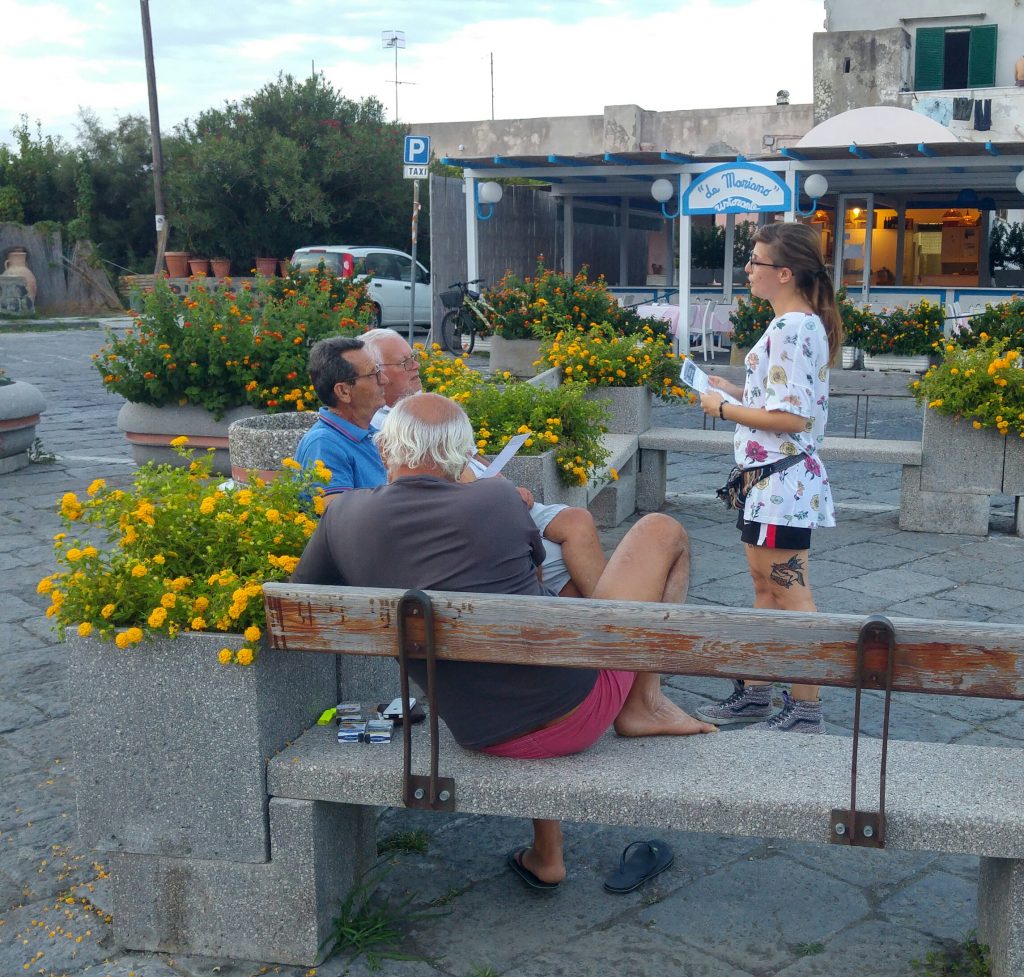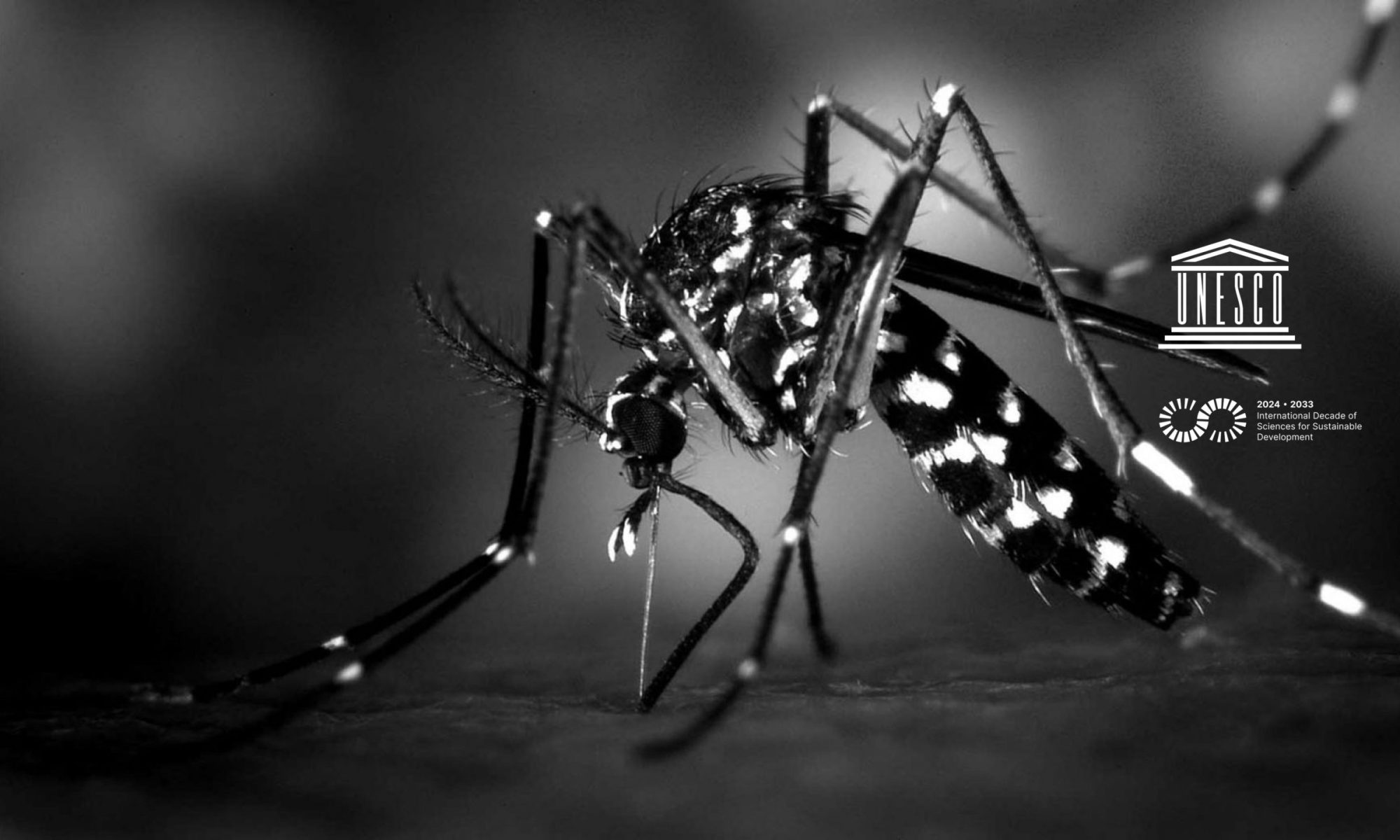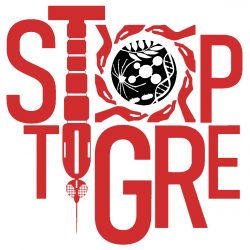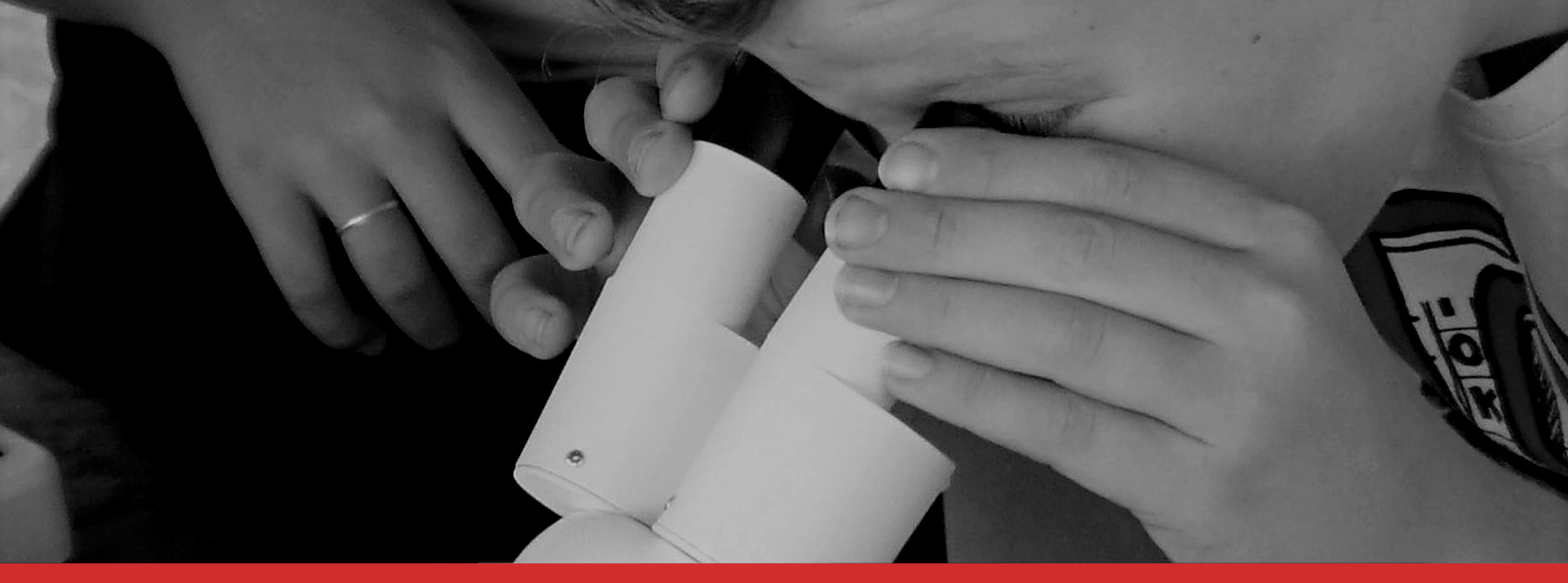ACTIONS 2024 [PHASE6]
In 2024, the actions of the STOPTIGRE project focused on implementing a pilot experiment using the sterile insect technique to reduce the density of the invasive Asian tiger mosquito population, Aedes albopictus, on the island of Procida without using chemical pesticides and with the active participation of the local community. The experiment, currently ongoing and co-funded by the INF-ACT foundation, is being conducted over an area of approximately 20 hectares in the locality of Chiaiolella. It involves the participation of the Municipality of Procida, the Academy of Fine Arts of Naples, the Disintegrati APS Association, the M.I.S.T.A.K.E. collective and the “G. Nicoli” Center for Agricultural Environment in Crevalcore, for the production of sterile male tiger mosquitoes.


The preparation of the area and the procedures for both the release of sterile males and the monitoring of the experiment’s progress are being carried out on the island with the active participation of the citizens and the local administration. Citizen involvement was made possible through a communication and community engagement campaign, developed specifically by the Disintegrati APS association, and implemented together with the team of teachers and students from the New Technologies of Art course at the Academy of Fine Arts of Naples. Building on the successful experience carried out on the island with the SCIENZA APERTA project during the year of Procida as the Italian Capital of Culture (see ACTIONS 2022), based on a similar format of Citizen Science and Citizen Art, an engagement action was developed, organized in four phases.
April 2024
In April, after conducting a study of the territory and community relational dynamics, a comprehensive action was carried out to disseminate informational materials and relational accelerators to encourage community participation. Additionally, a door-to-door action was conducted to prepare the area (private green space arrangement and elimination of potential breeding sites for tiger mosquitoes) for the subsequent release of sterile male tiger mosquitoes.
May 2024
In May, “guerrilla marketing” actions were implemented to facilitate relationships between involved entities and encourage active citizen participation in the monitoring and procedures for releasing sterile tiger mosquitoes. Among these actions: dissemination of specially developed artistic installations (thematic flags, giant letters, mural writings) throughout the area, expansion of the artistic operation involving 3D scanning of residents initiated in 2022, and creation of “Zones of”: pop-up spaces for research activities in collaboration with other departments of the Federico II University.
June 2024
In June, all activities initiated in previous months continued, and work progressed towards the realization of the final event “Noi Umani,” which involves active participation of the residents of Procida and marks the conclusion of phase 3 of the project.







Larval breeding sites elimination and release of sterile male tiger mosquitoes
During the month of April, alongside the community engagement activities, actions began to reclaim larval breeding sites in Chiaiolella and the selection of 100 sites for the weekly release of sterile males.
The releases of sterile male tiger mosquitoes started in the first week of May and are ongoing on a weekly basis.
The reclamation actions also involved citizens who helped us create and distribute nets to cover rainwater collection bins that cannot be removed.
In June, the first release of sterile males was conducted in collaboration with citizens. 100 boxes containing approximately 300 sterile males were given to as many families, who could release them independently in their home gardens, contributing to the ongoing experiment. Additional releases with citizens will take place in July, August, and September.
The project will conclude in September with a public event to share the project’s phases and results with the community. The event will take place on Sunday, September 29, as part of the European Researchers’ Night initiatives.
ACTIONS 2023 [PHASE4]
In 2023, the activities of the STOPTIGRE project once again focused on the world of education, with the “Train the Trainers” project carried out in collaboration with the 1° C.D. Capraro Institute of Procida, the Neapolitan society LeNuvole Scienza, and with the support of the INF-ACT foundation. As in 2019, the strategy underlying the developed actions was centered around the student, considered an “ally” in the fight against the tiger mosquito, as they act as a “trainer” at home for parents and relatives on the good practices to be implemented to counter the spread of the vector insect.
The activities took place in May 2023 and involved 379 students from 21 classes of primary and lower secondary school.



During the activity, we experimented for the first time on a national level with the use of games to teach the biology of vector arthropods in schools. The game “Vector Control,” specially developed by Dr. Gianluca Vitiello from LeNuvole Scienza, was a great success among the students of the Capraro Institute of Procida.






The students were also given a manual, specially created for this activity, on the biology of the tiger mosquito and the best practices to apply to counter its spread. The manual, available for download here, also contained activities to be carried out at home with parents, including a mosquito monitoring activity on private properties through the collection and return to school of mosquito larvae. With the data collected by the students and their families, it was possible to create a sample map of the distribution of larval breeding sites on the island.




During the year 2023, the monitoring of the temporal dynamics of the tiger mosquito population continued through the use of 60 ovitraps placed in three areas of the island: Chiaiolella, Olmo, and Starza. The aim of the monitoring was to select two areas, one test area and one control area, with similar trends in the tiger mosquito population over time, to be used for the implementation of the sterile male tiger mosquito release experiment planned for 2024.


ACTIONS 2022 [PHASE5]
In the year of Procida Italian Capital of Culture, the activities of the STOPTIGRE project were developed as an innovative action of Community Citizen-science (Community-science), with a strong cultural component, in collaboration with relational artists of the Academy of Fine Arts of Naples. These actions have flowed into the “Scienza Aperta” project, one of the 44 cultural projects of the official program of Procida2022.
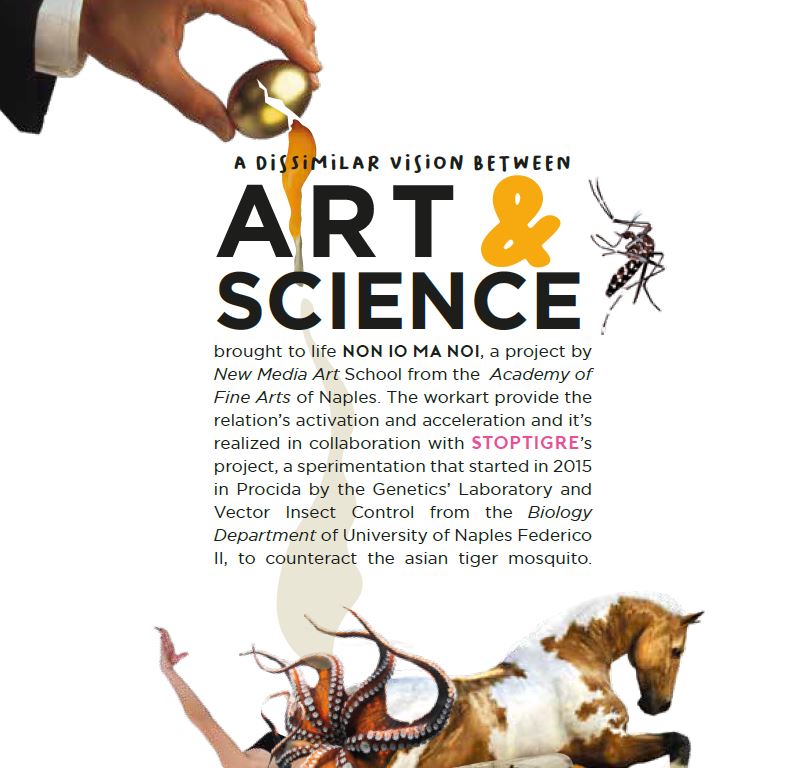
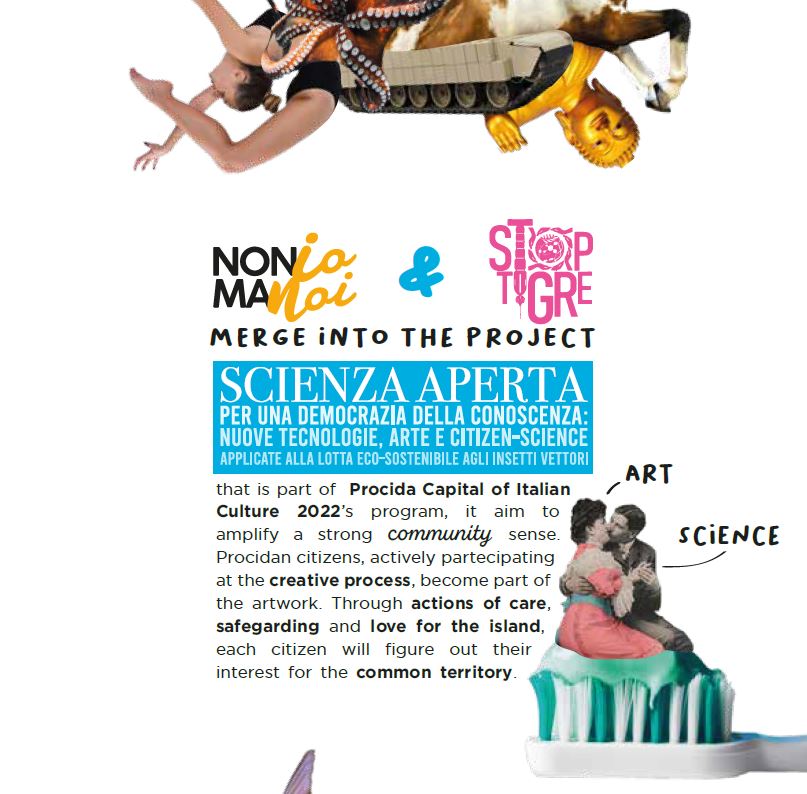
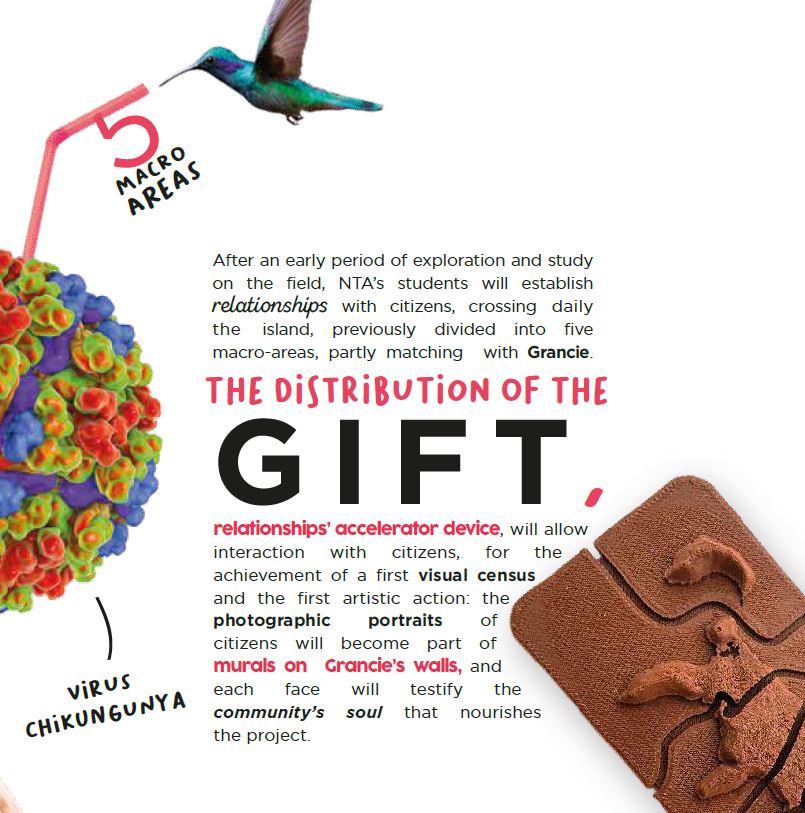
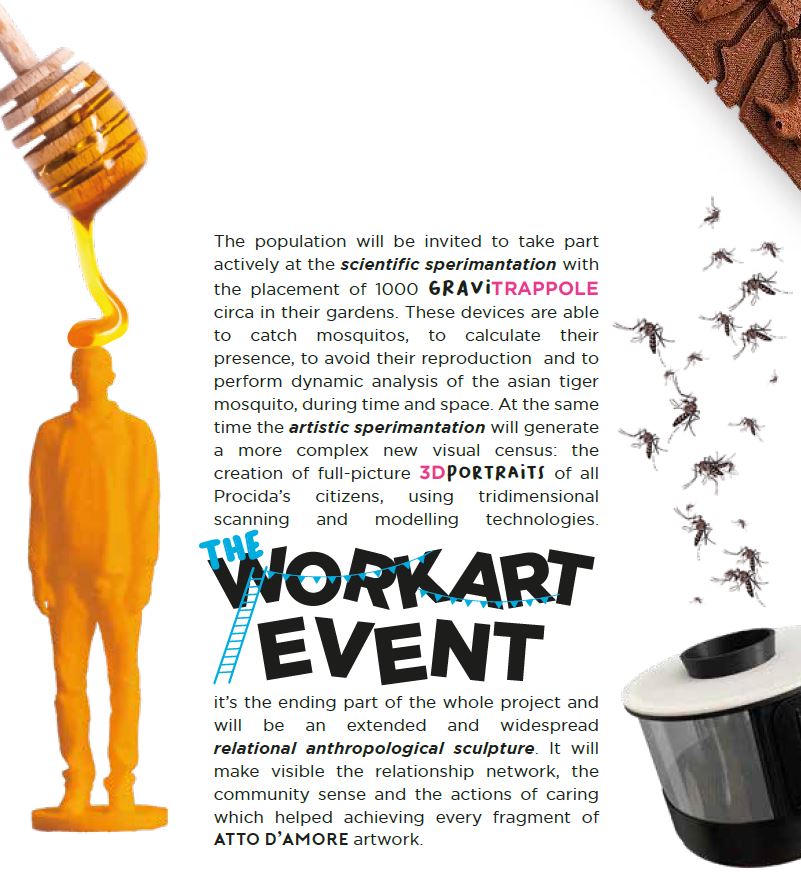
Since April 2022 about 100 people, including students and teachers of the Department of Biology of the University of Naples Federico II and the course of New Technologies for Art of the Academy of Fine Arts of Naples, have explored the territory of the island of Procida, divided into five zones, to build relationships and start interactions with the local community.
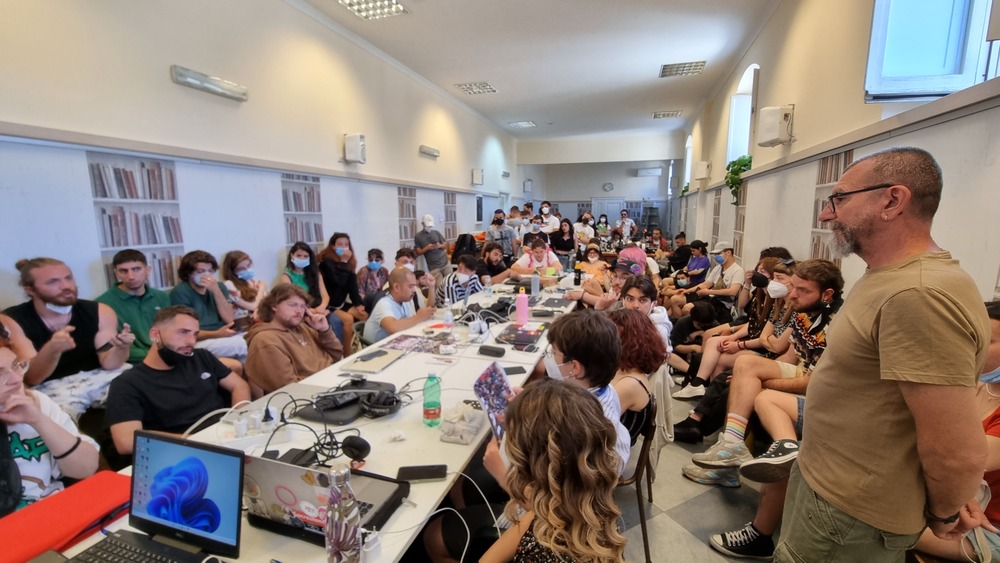
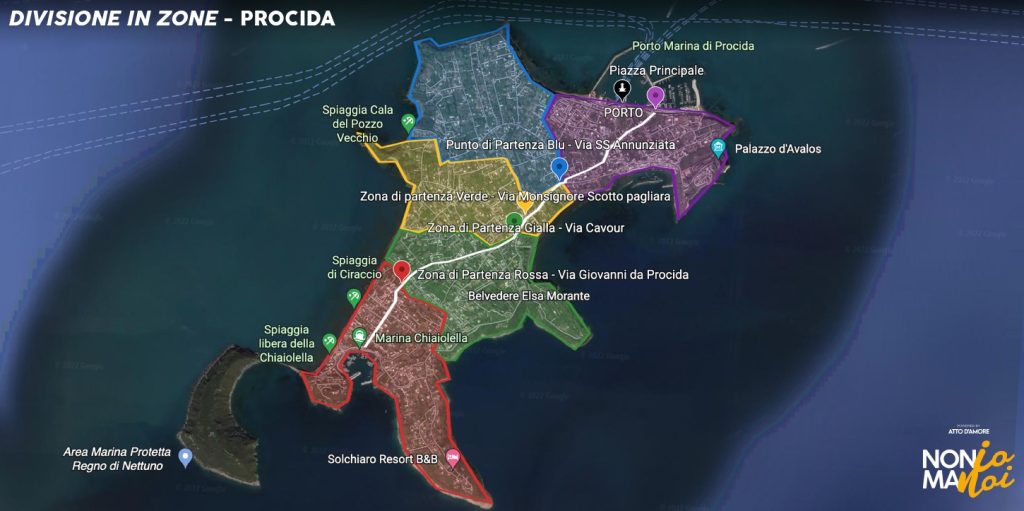
In May, starting from the network of relationships built in April, citizens were invited to actively take to a monitoring experiment of the Asian tiger mosquito through the use of gravitraps, devices capable of catching adult mosquitoes. In just 5 days, 500 gravitraps, supplied by the German company Biogents Ltd., were placed in about 400 private properties distributed throughout the island.
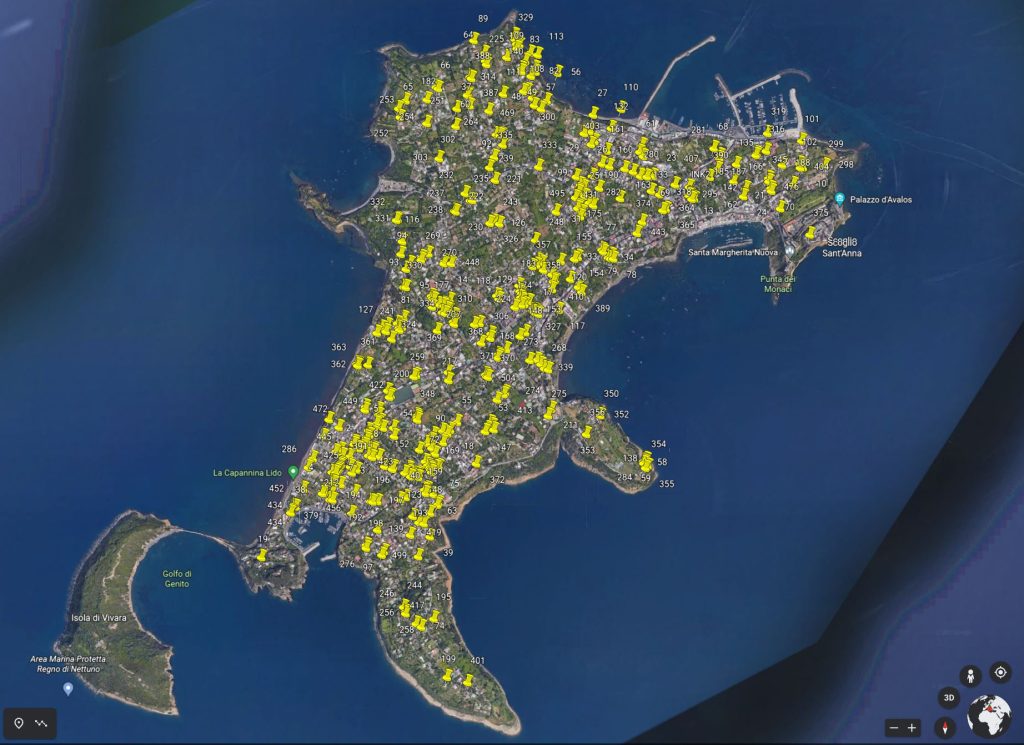
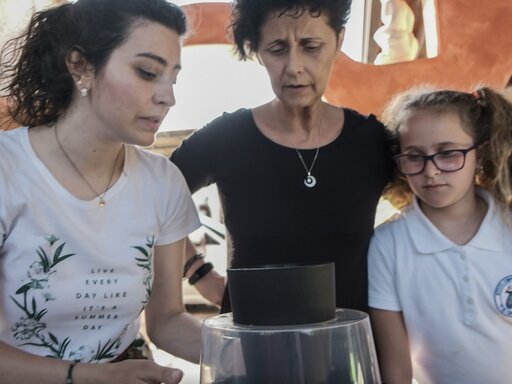
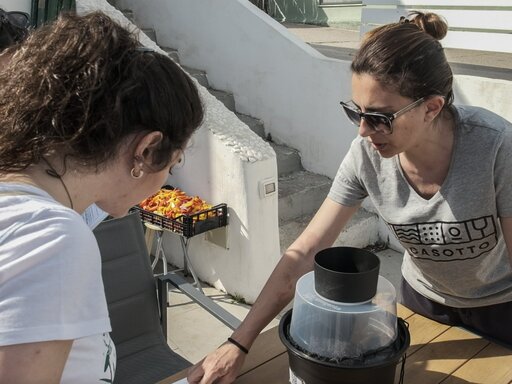
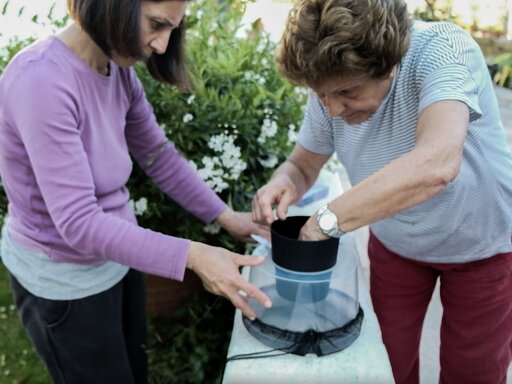

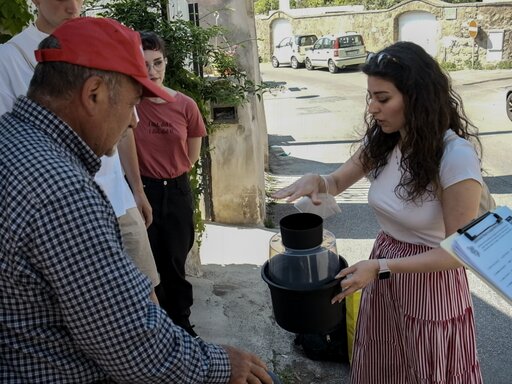
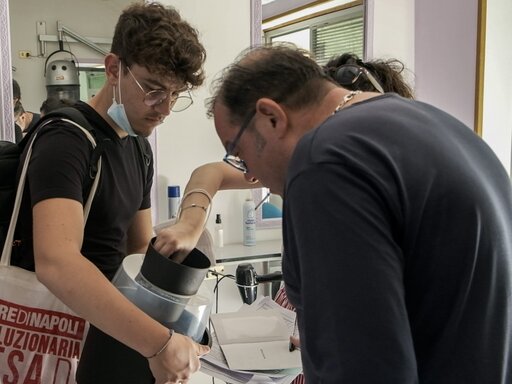
Citizens were asked to manage the gravitrap, every two weeks, until the end of September, sending through an app for mobile devices, developed ad hoc, the photos of the sticky sheets present in the trap with the captured mosquitoes.
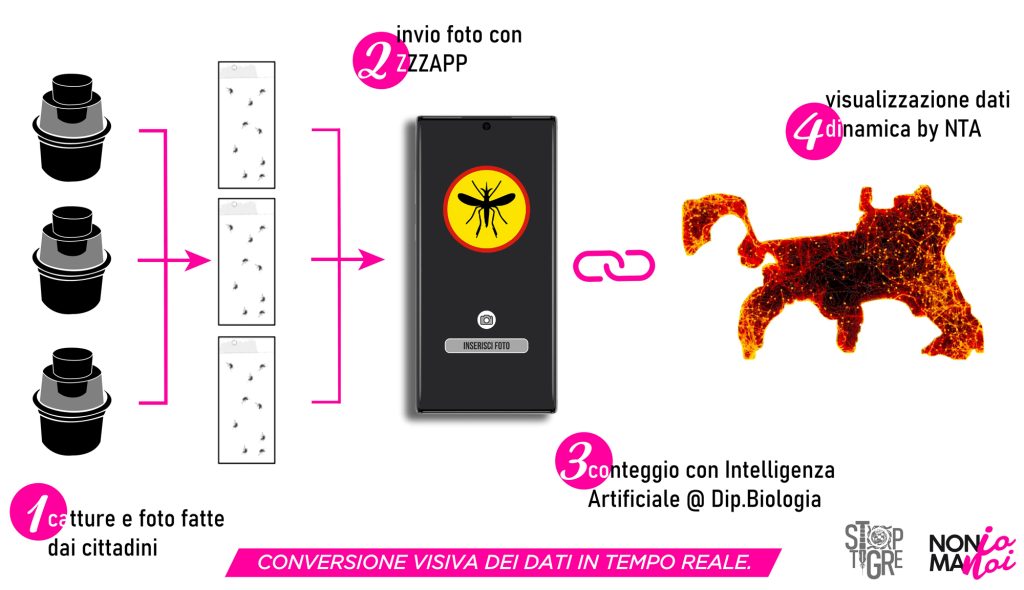
The designed actions had the objective of involving citizens in a project of study and control of a vector insect in an innovative and transdisciplinary way and at the same time to nourish a strong sense of community, through actions of care, protection and love for the island, making each inhabitant a witness of their interest in the common territory. During the various phases of the project, citizens were invited to become protagonists of photographic portraits and 3D scans of their figures. This material was used to create two representations of the island community involved in the project: the murals and the 3D census.
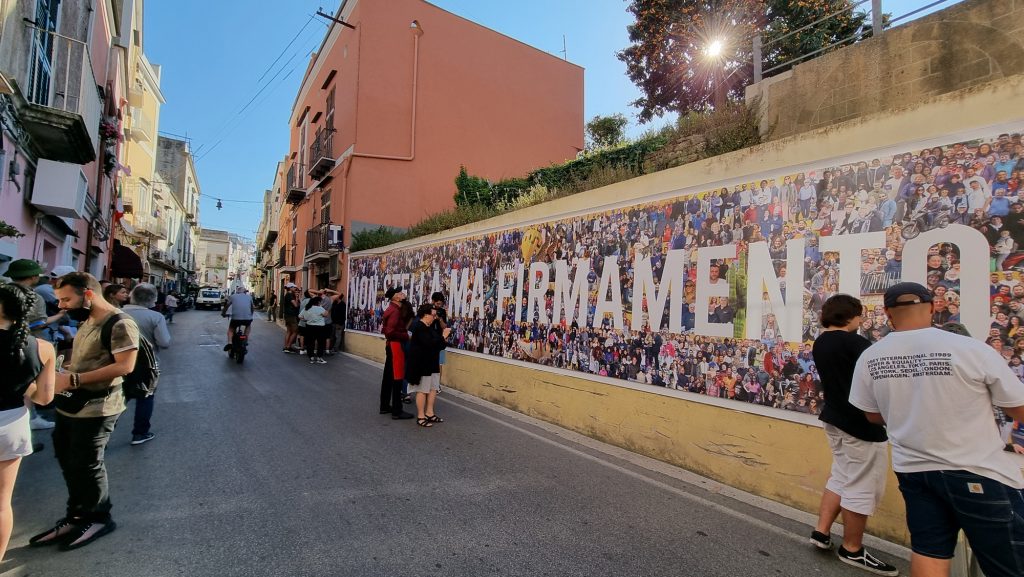

In June, a “Opera-event” entitled “Noi io ma noi” was staged, a widespread “relational anthropological sculpture” co-created with citizens, which made visible the network of relationships built, the sense of community and the actions of care through art and science, able to have a positive impact on the territory.
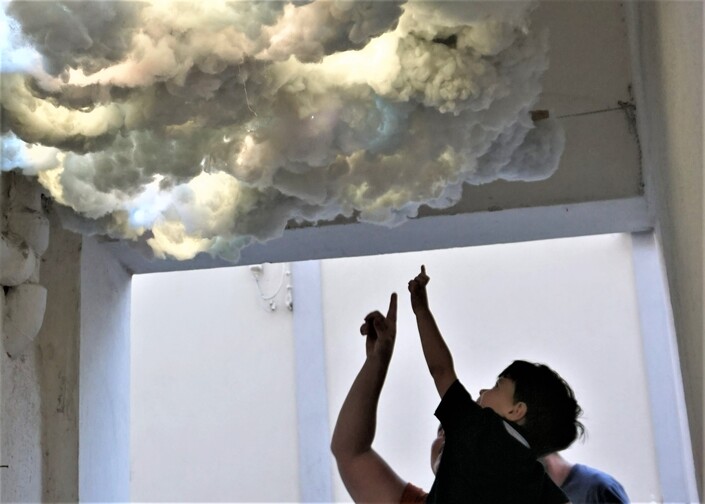
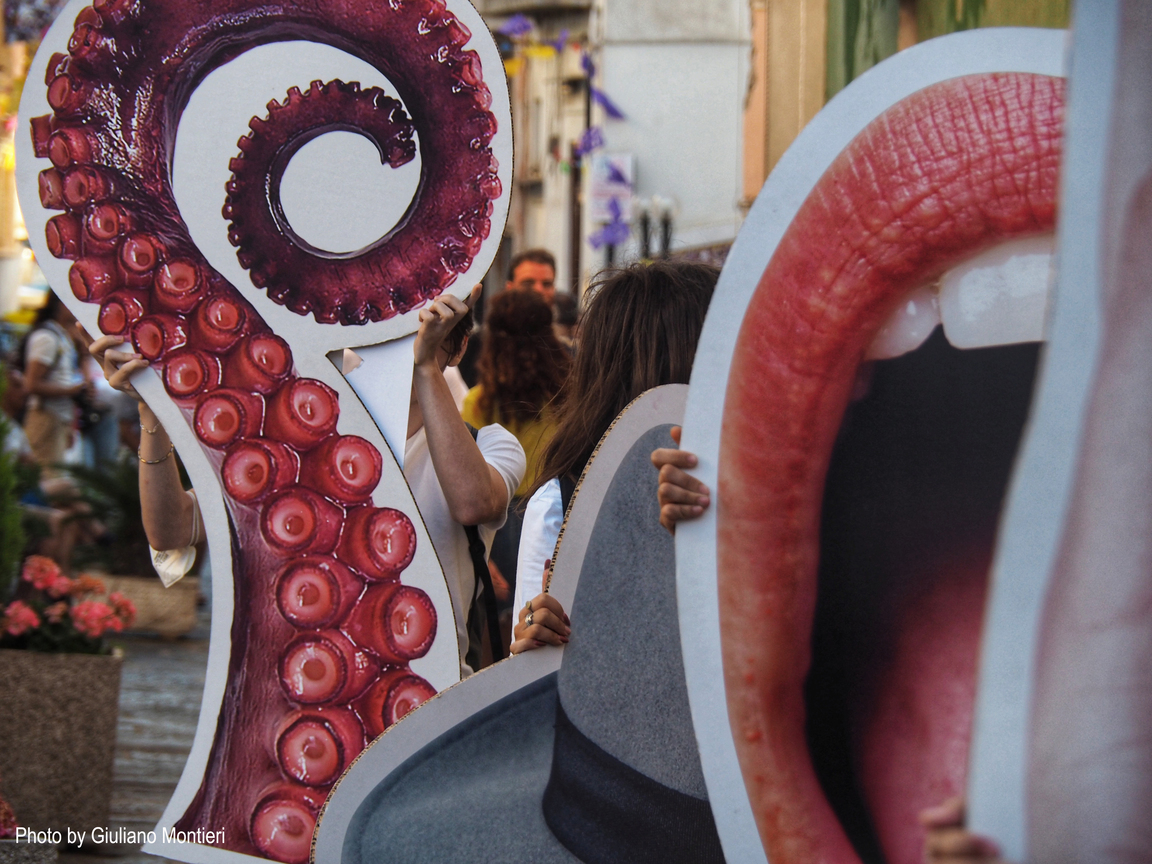
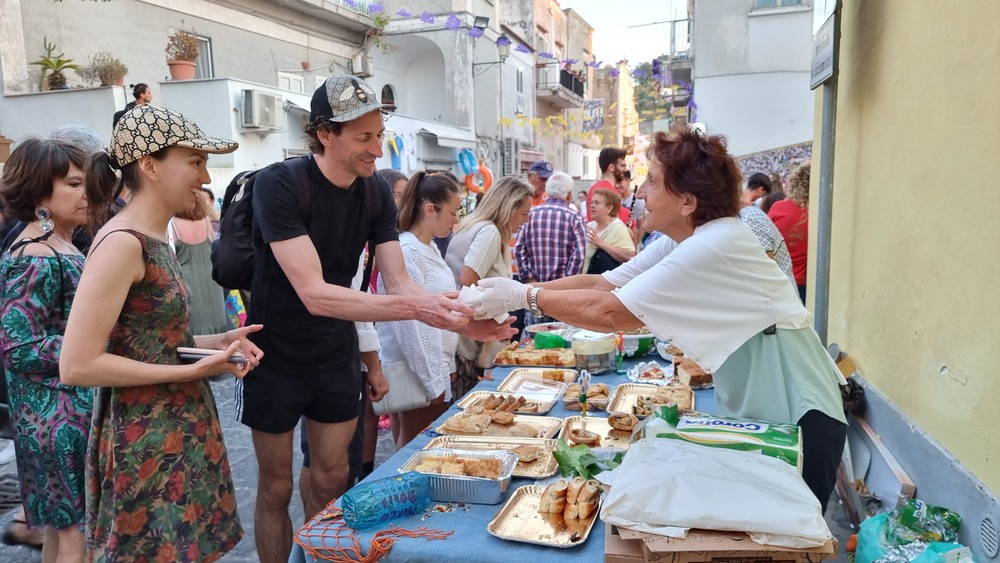
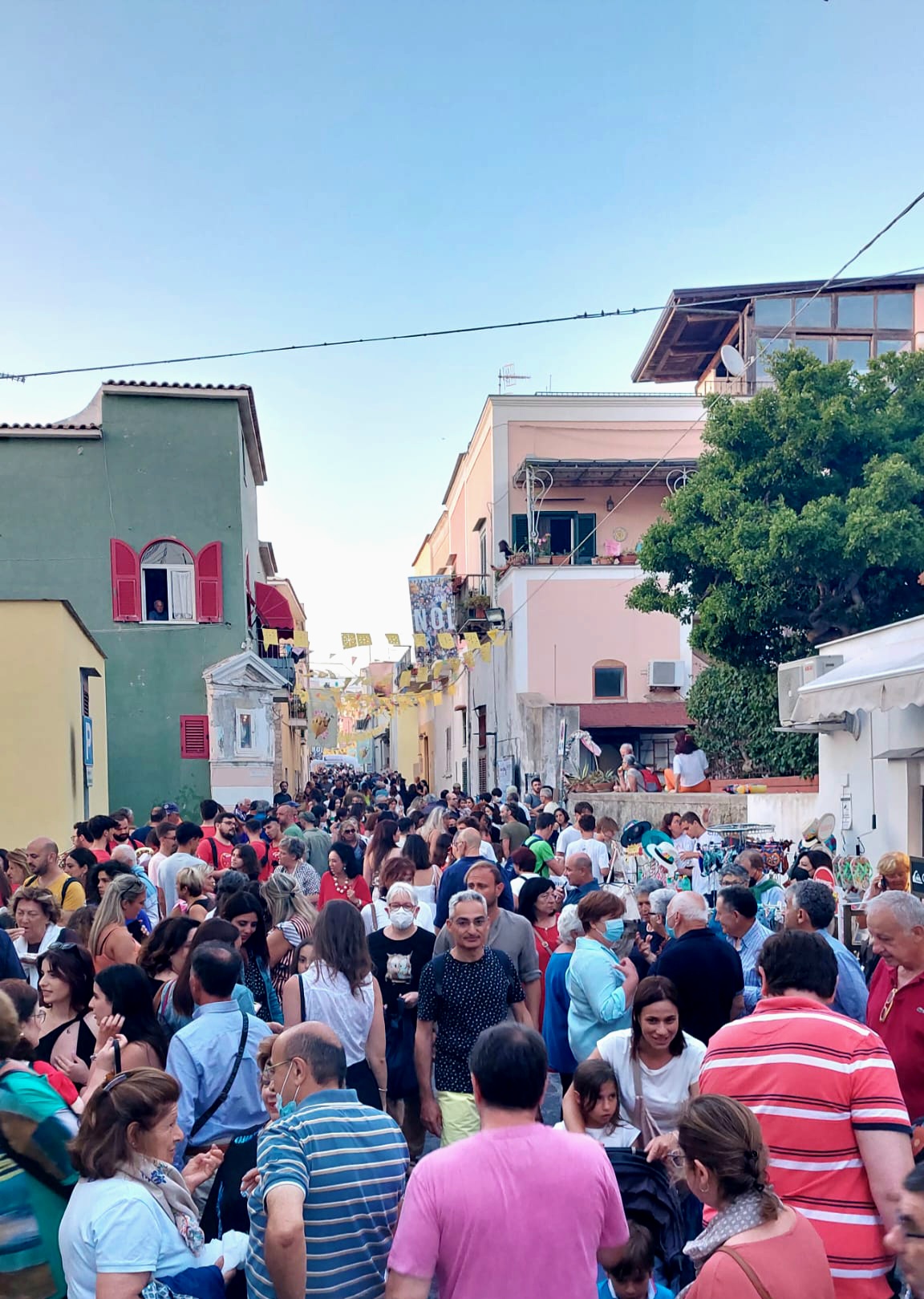
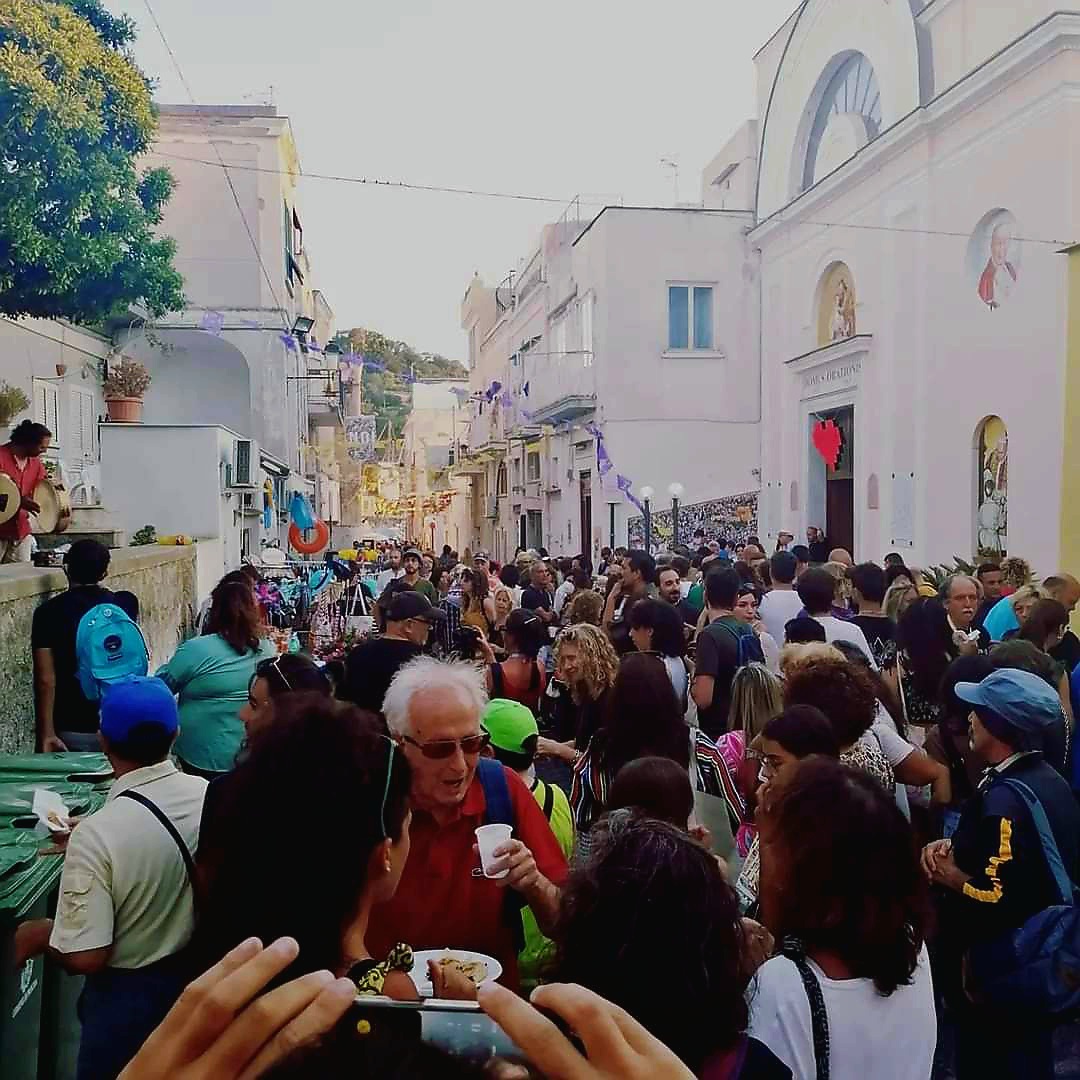
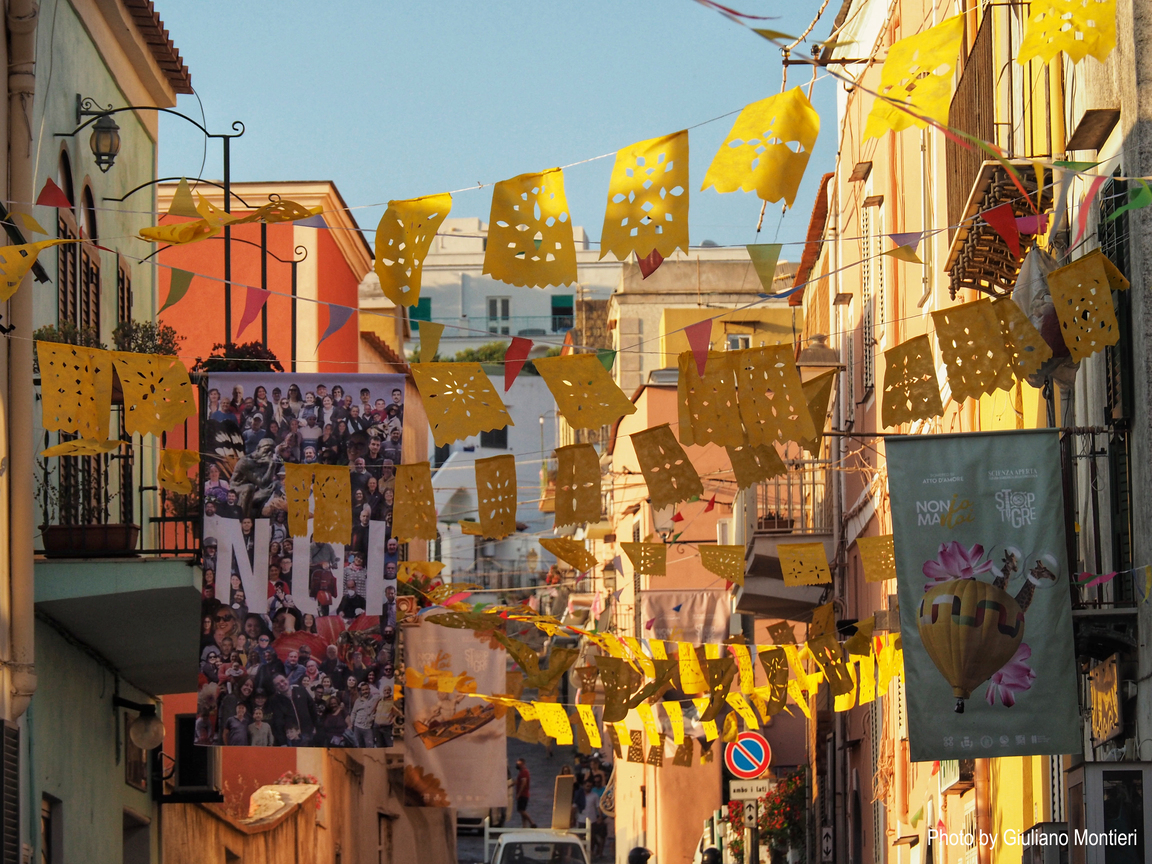
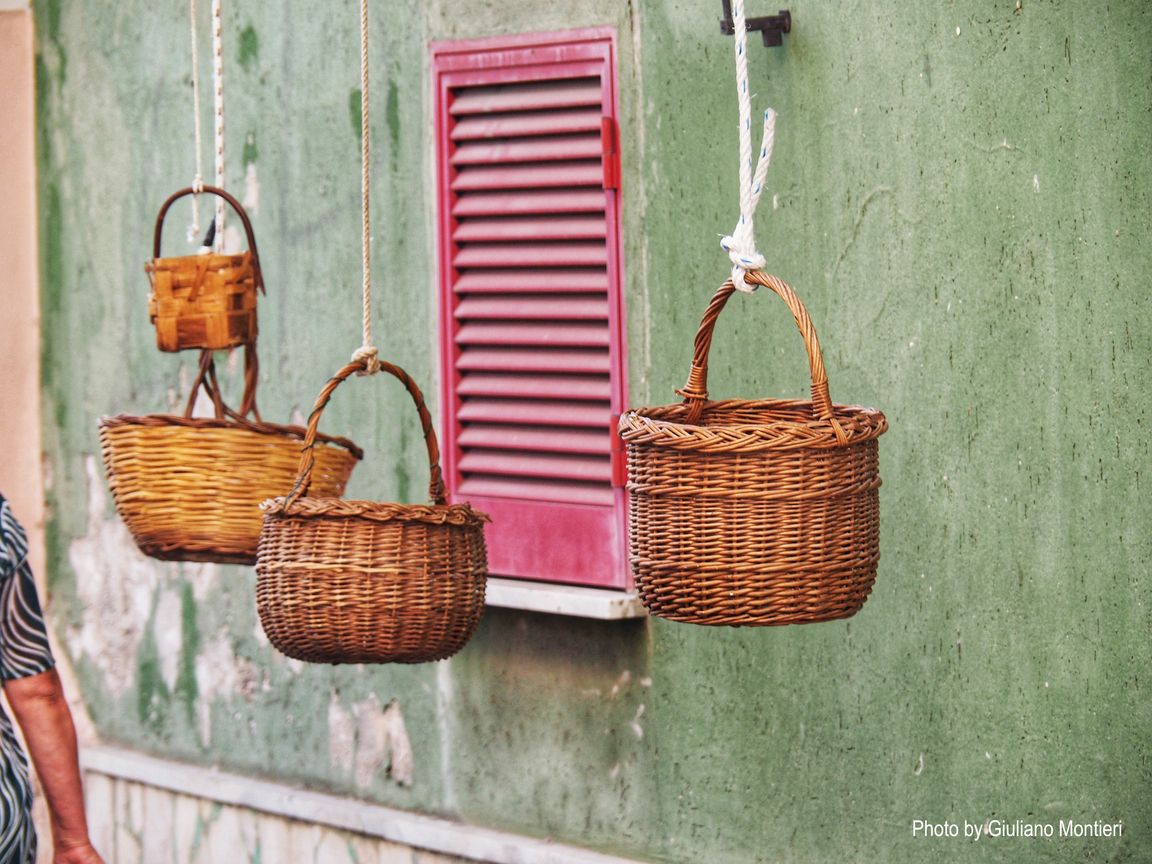
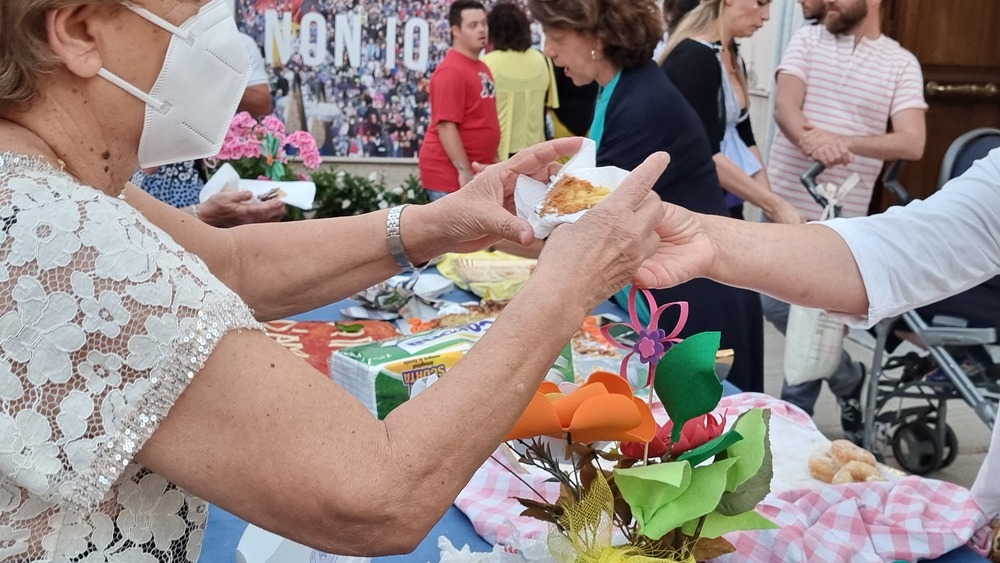
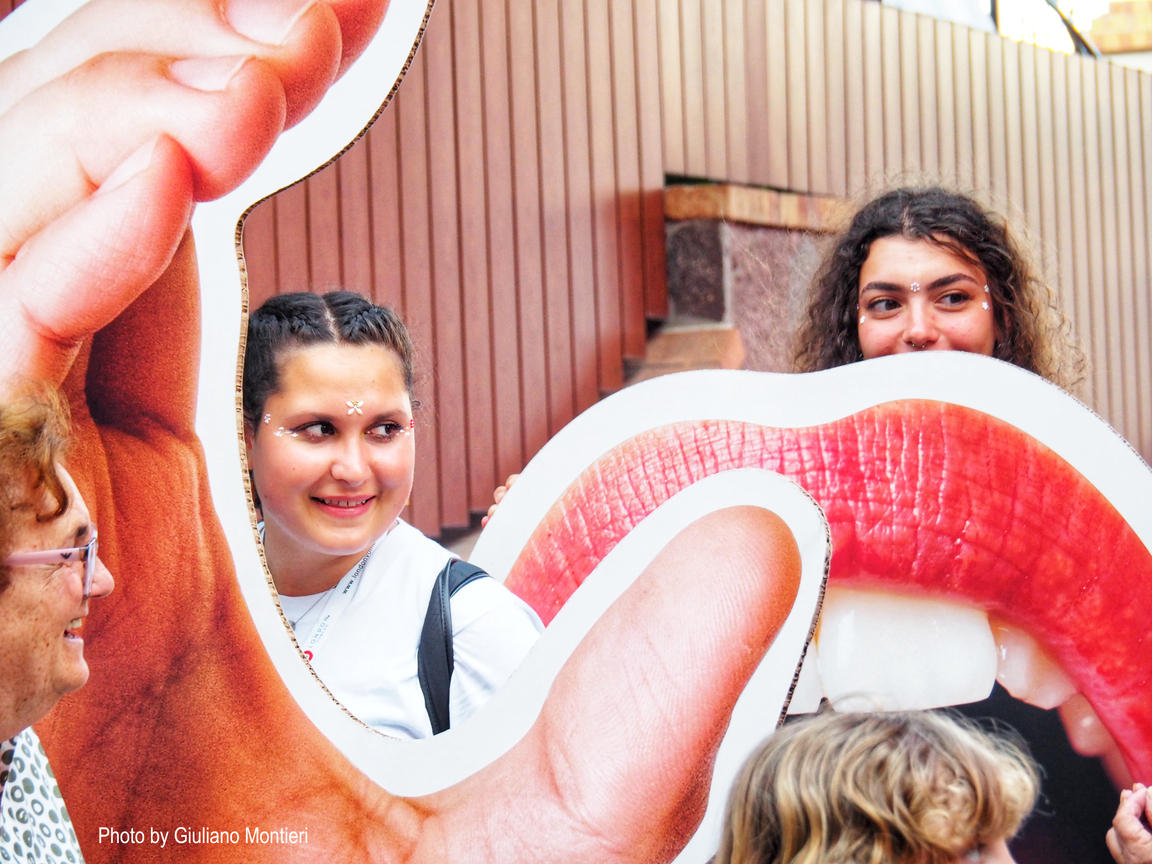
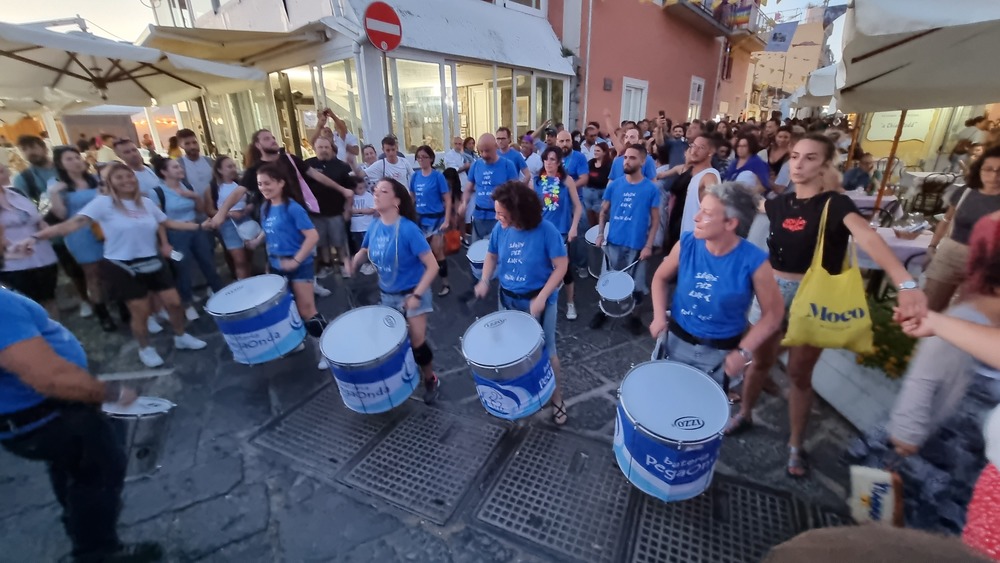
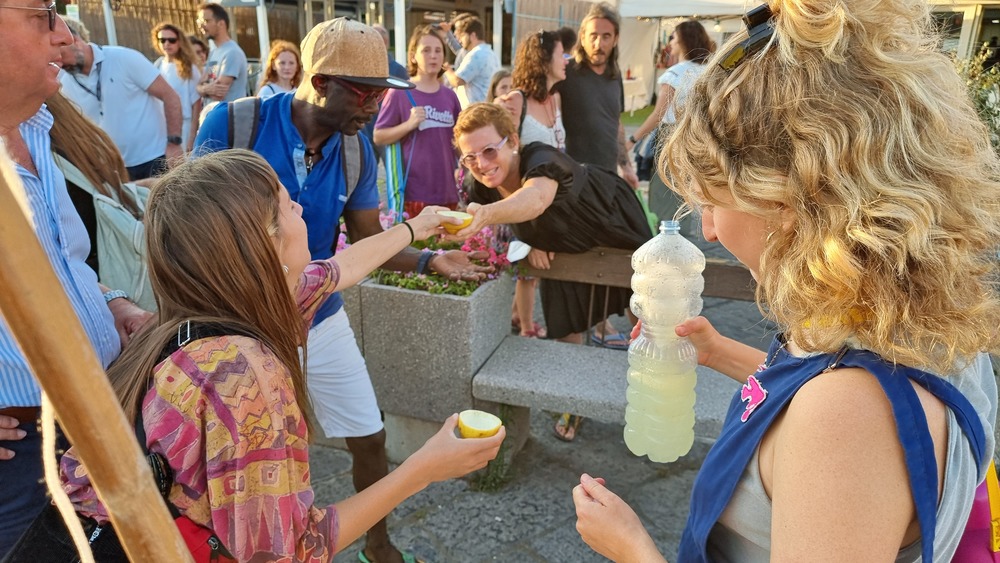
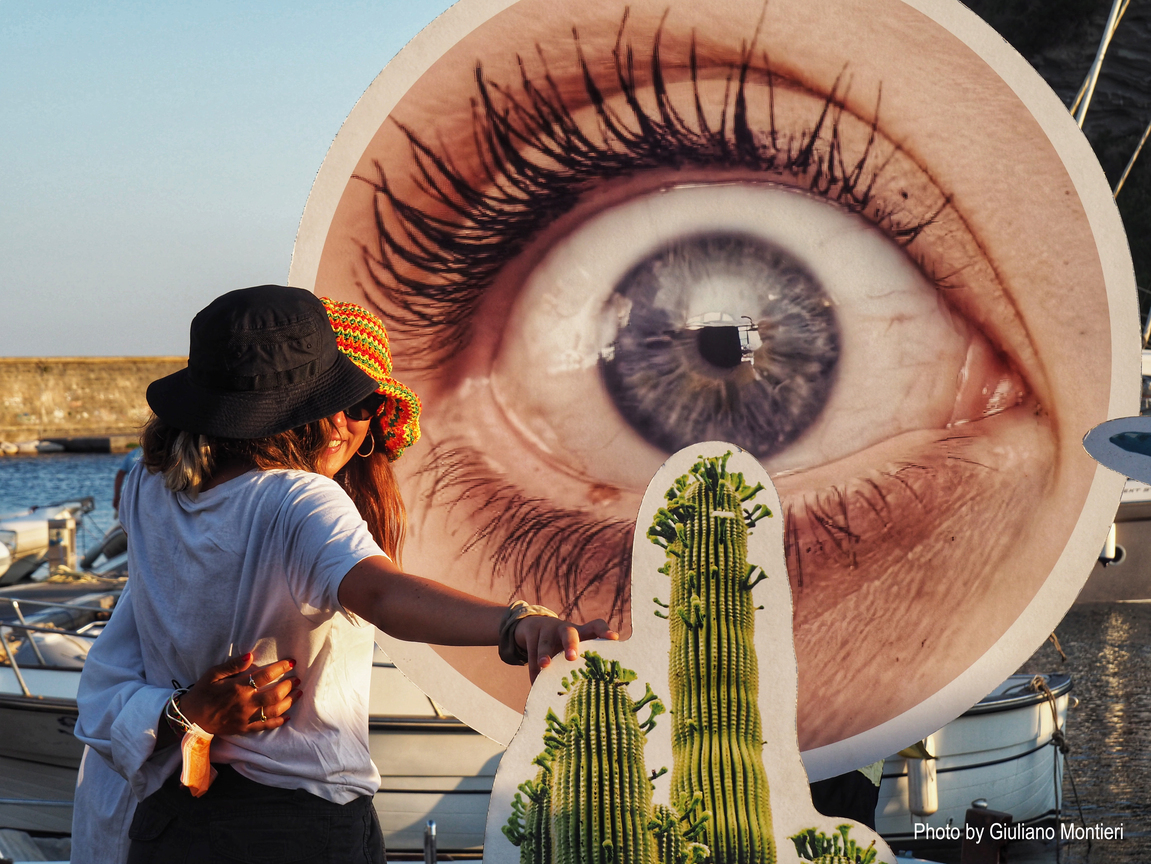
The event, held in Chiaiolella, was attended by hundreds of people from all over the island, and was also an opportunity to further disseminate the scientific objectives of the project and the results obtained to date.
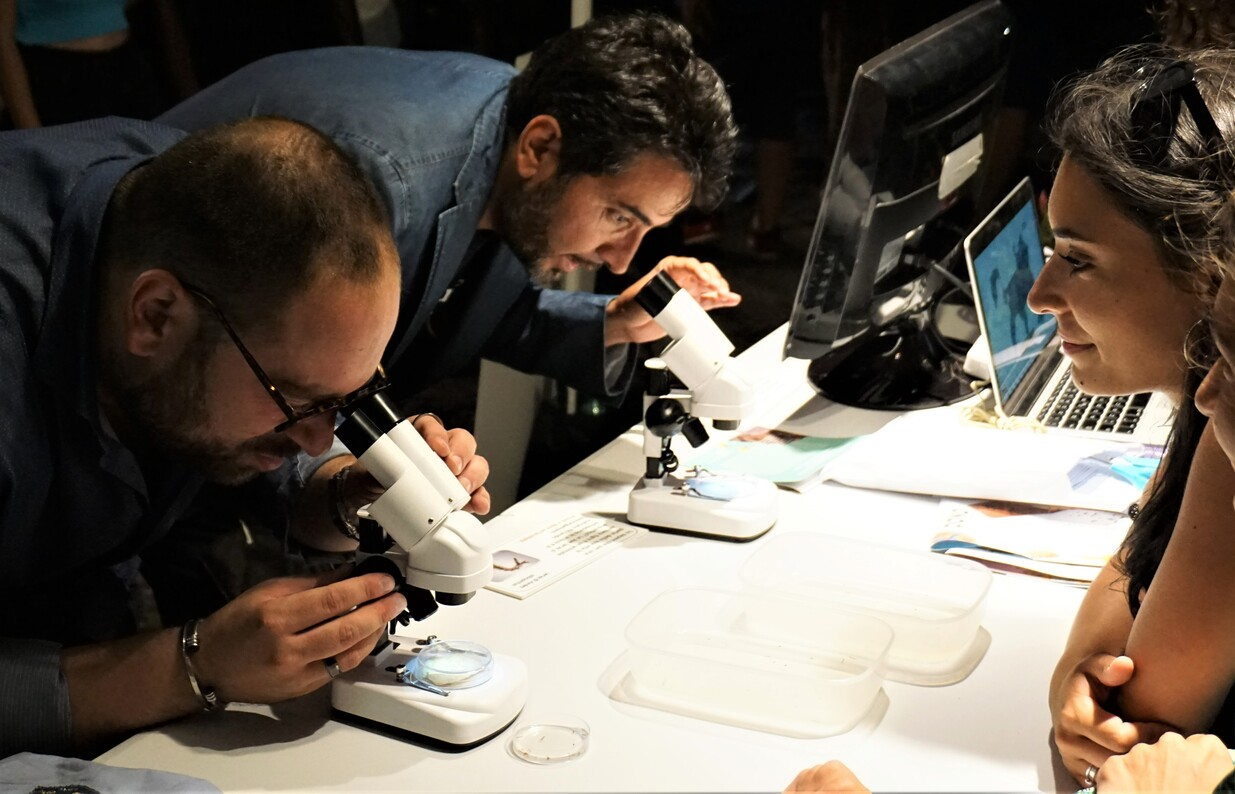
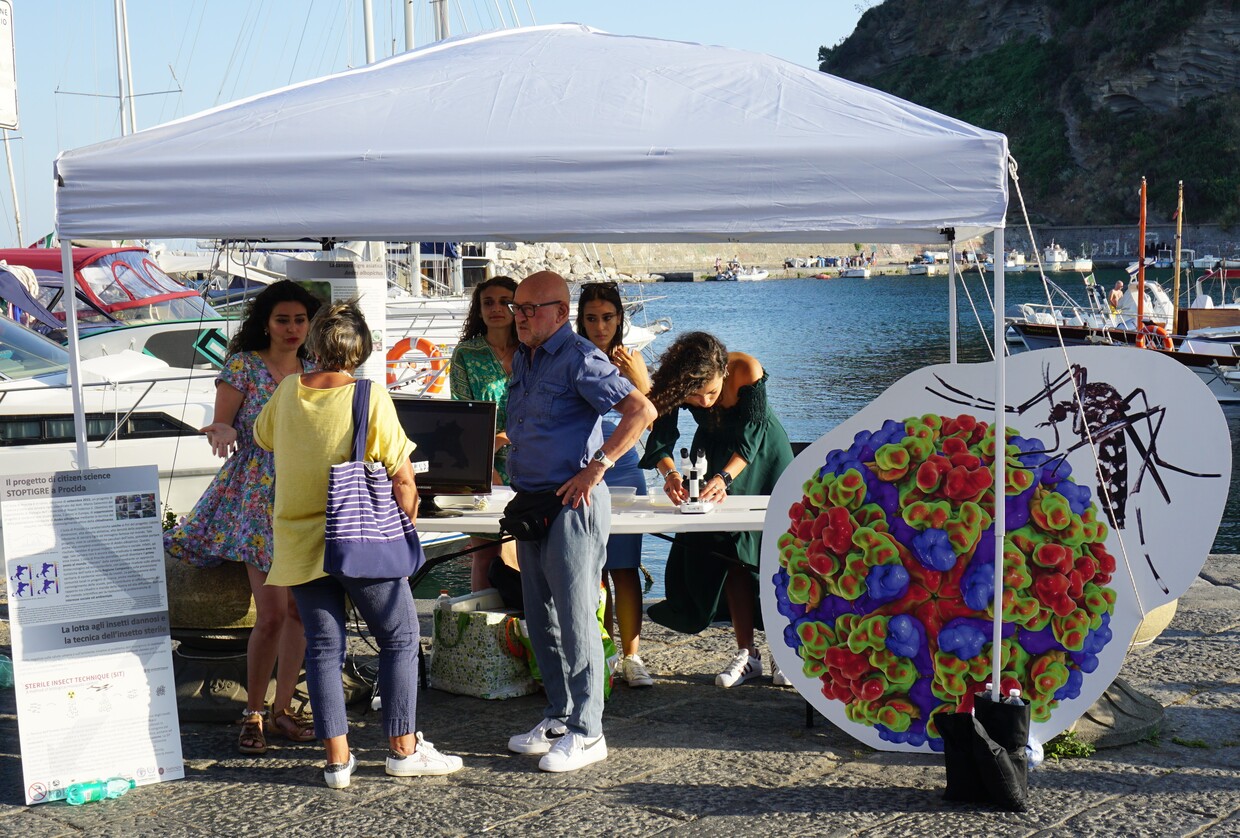
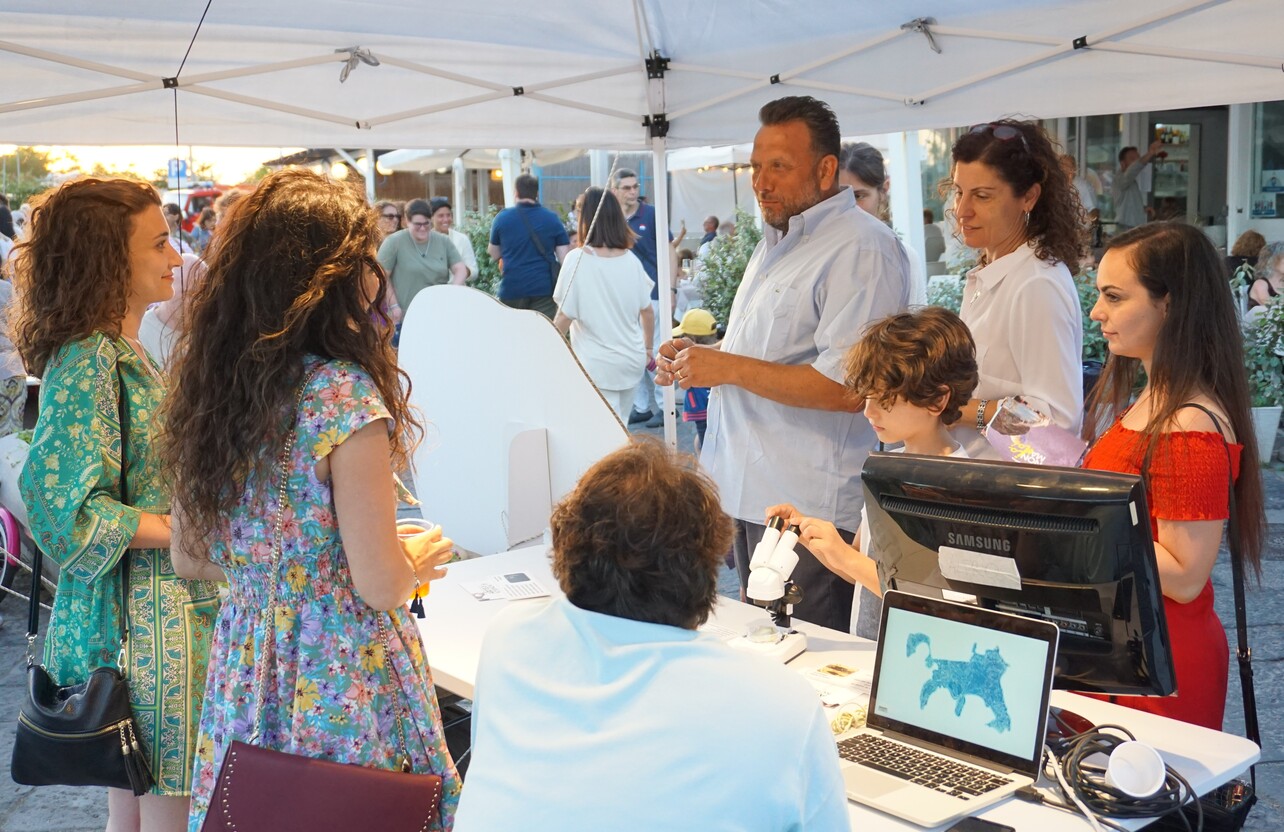
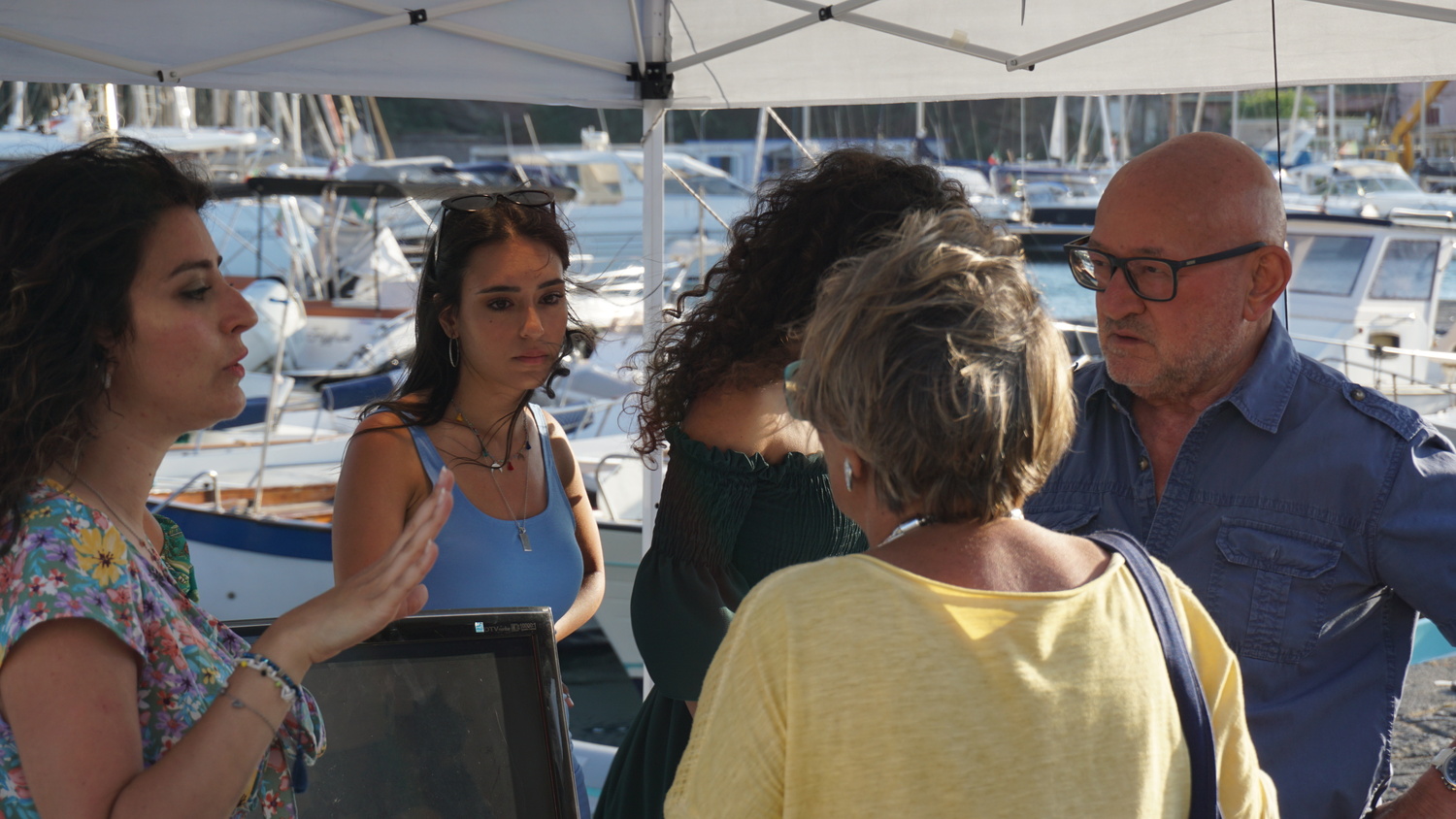
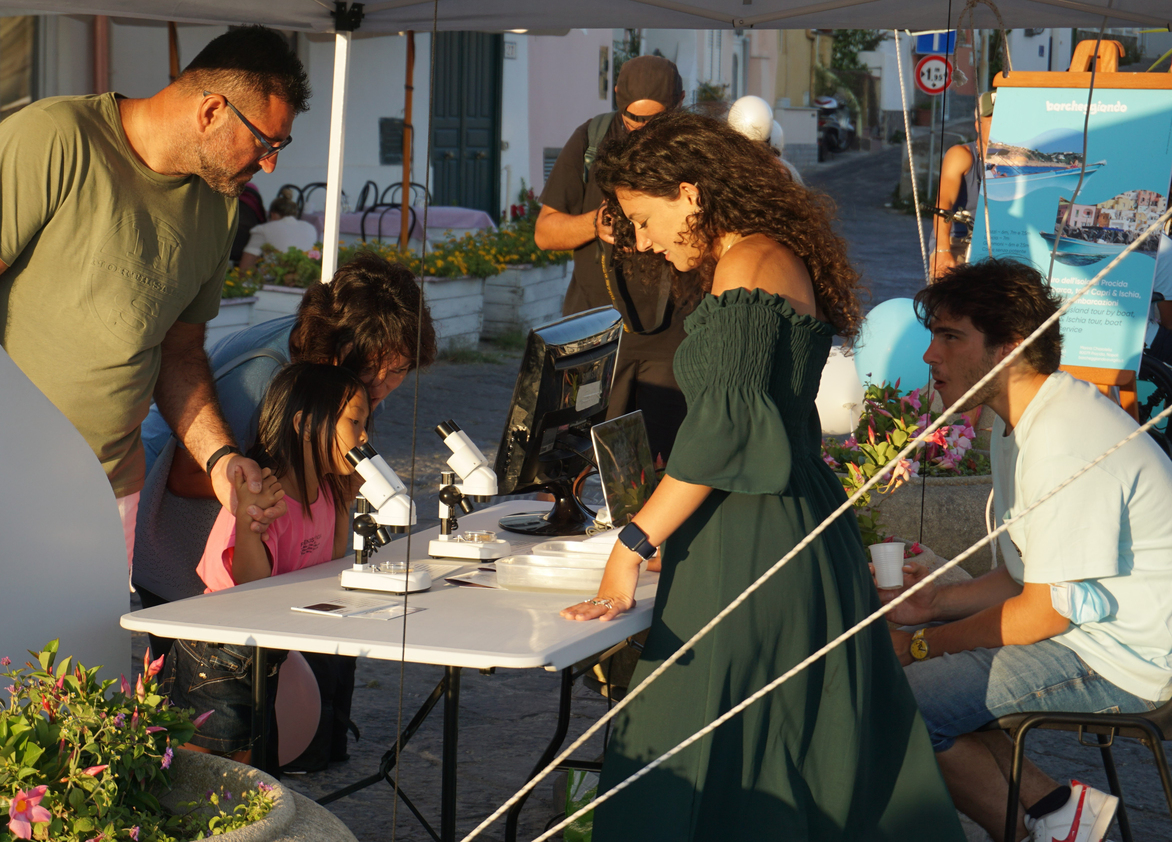
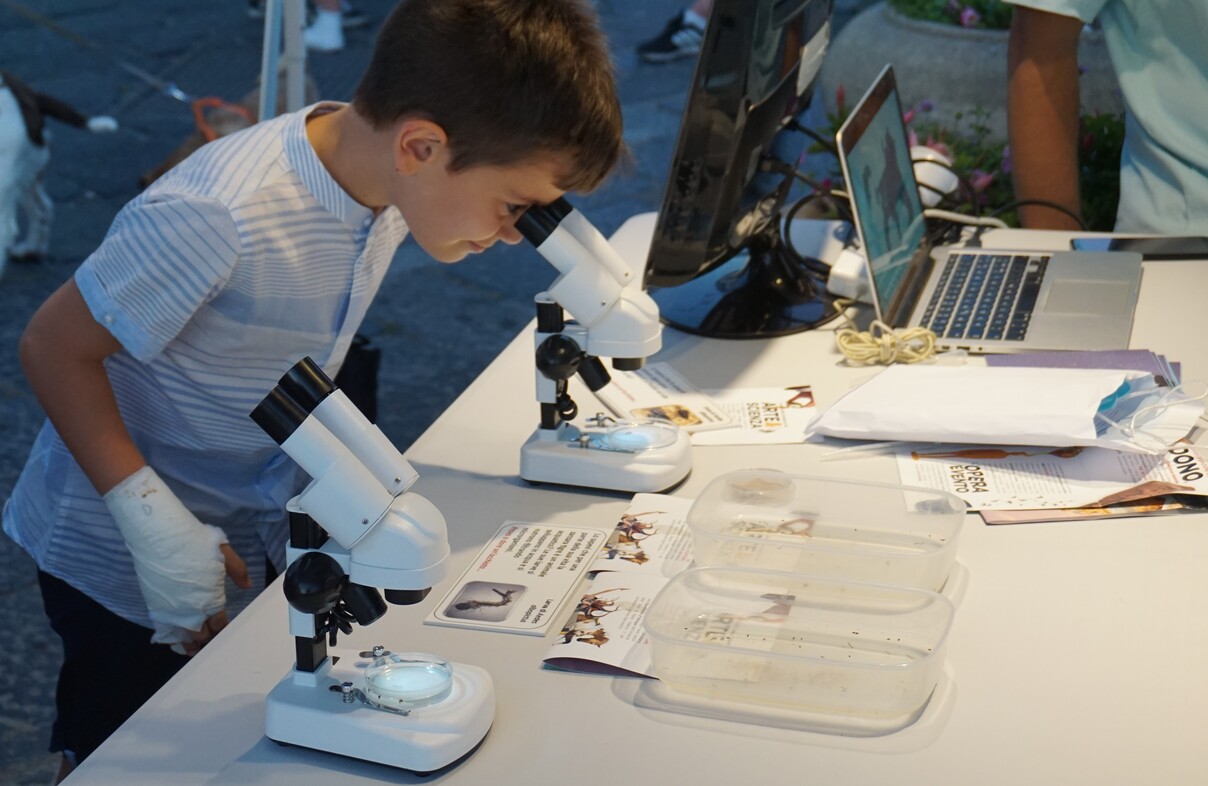
The project ended in September with a public restitution event of the data collected during the six months of experimentation, organized as a “scientific coffee evening”, held in conjunction with numerous laboratory activities prepared for the European researchers’ night 2022.
The great success in terms of the number of people involved and of the relational connection with the territory have underlined the great potential of the innovative transdisciplinary approach developed by us, not only for projects to combat the spread of insect vectors, but more generally for the implementation of effective third-mission initiatives capable of generating a significant and lasting impact over time.
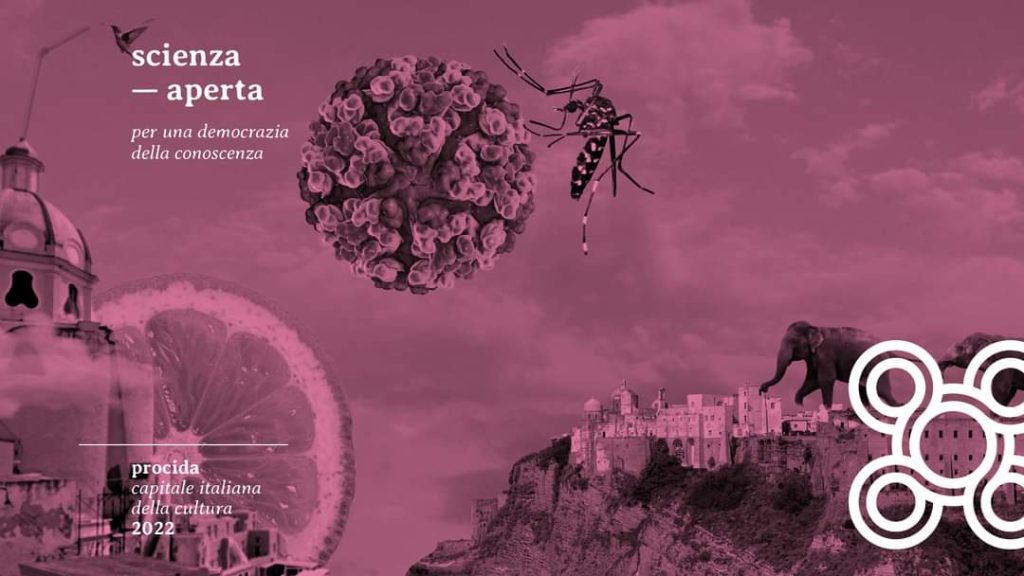
ACTIONS 2021 [PHASE5]
In 2021 the territory of the island has become the scene of an awareness campaign carried out thanks to the help of a smart app for mobile devices called MosquitoAlert (http://www.mosquitoalert.com/en/). After being the first in Italy to test the ZanzaMapp5 smart app for reporting mosquito bites (https://www.zanzamapp.it/), developed by researchers from the University of Rome La Sapienza, the Procida citizens were involved this time to report, through the MosquitoAlert app, the larval breeding sites of tiger mosquito, consisting of water accumulations in plastic containers or other water sources. This initiative had the objective of creating a map of the water accumulation sites on the island, in public and private areas, to subsequently develop an action of elimination of these sites, an essential premise to lower the density of the tiger mosquito on the island in view of the application of the sterile insect technique. This citizen-science action has become part of the initiatives of the approach to Procida Capital of Culture 2022 and was organized in collaboration with the organization of Procida2022.



ACTIONS 2019-2020 [PHASE4]
In the two-year period 2019-2020, the STOPTIGRE Project has put the school at the center of its agenda as a privileged interlocutor to develop innovative service learning and Citizen-science actions. The strategy behind the actions developed was centered around the student, considered not only an individual to be trained, to have an adult aware and prepared for good practices to be implemented to combat the spread of vector insects, but also an “ally” in turn trainer towards parents and relatives.
In May 2019 an environmental education activity was carried out with the students of the first classes of the middle school of the Capraro comprehensive school in Procida on the biology of the two main species of mosquitoes present on the island, the common and native mosquito Culex pipiens and the invasive alien mosquito Aedes albopictus, in order to illustrate the health importance of mosquitoes vectors of pathologies for humans and to present to the children the main tools of biological control applicable for mosquitoes. The day was organized in two phases, the first with theoretical lessons and the second with practical experiences in the classroom, which was followed by a third phase carried out at home by the children with the help of their parents.

Subsequently, in the year 2020, in the midst of the Covid-19 pandemic, we carried out a monitoring project with ovitraps with the students of class 3B, scientific high school, of the Caracciolo-Da Procida Institute. The Citizen-science initiative started in November 2019 before the arrival in Italy of the virus. This allowed the students involved to continue monitoring safely, each at home, throughout 2020 and allowed to collect valuable data on the trend of the local tiger mosquito population during a period in which no field activities were allowed due to the lockdown. The experience of the “student-scientists” was presented during the third edition of the MEETmeTONIGHT – The European Researchers’ Night project, held online due to the pandemic (in presence on the island instead the 2018, 2019 and 2021 editions were held, in collaboration with LeNuvoleScienza di Napoli).
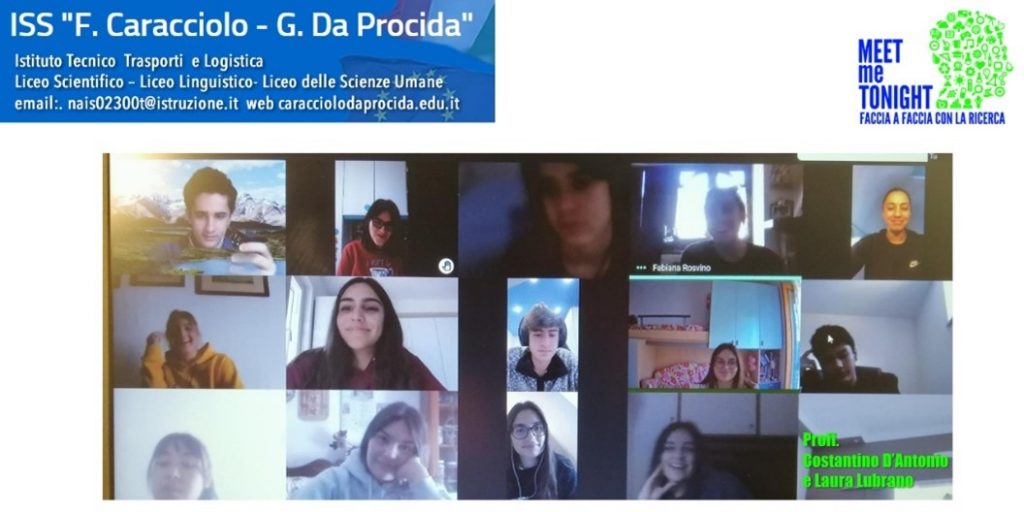
ACTIONS 2018 [PHASE3]
The actions undertaken in phase three of the project made it possible to calculate the density per hectare of the tiger mosquito on the island in the peak month of September and to assess the ability to survive and disperse in the environment of sterile male individuals of tiger mosquito released. Sterile mosquito males produced at the Centro Agricoltura ed Ambiente (CAA) “Giorgio Nicoli” in Crevalcore (BO) were used, transported by road at a controlled temperature. The study involved twenty families and a team of ten master’s and doctoral students from Federico II University.
The experiments of marking, release and recapture of sterile males marked with fluorescent powders have made it possible to highlight how, without appropriate control actions, at the end of the breeding season it is possible to reach very high densities of tiger mosquitoes on the island (up to about 10,000 individuals per hectare). At the same time, the experiments made it possible to verify the good survival capacity of sterile males, despite the remote production and transport procedures used, underlining the feasibility of this approach for future control programs with massive releases of sterile males in Procida.
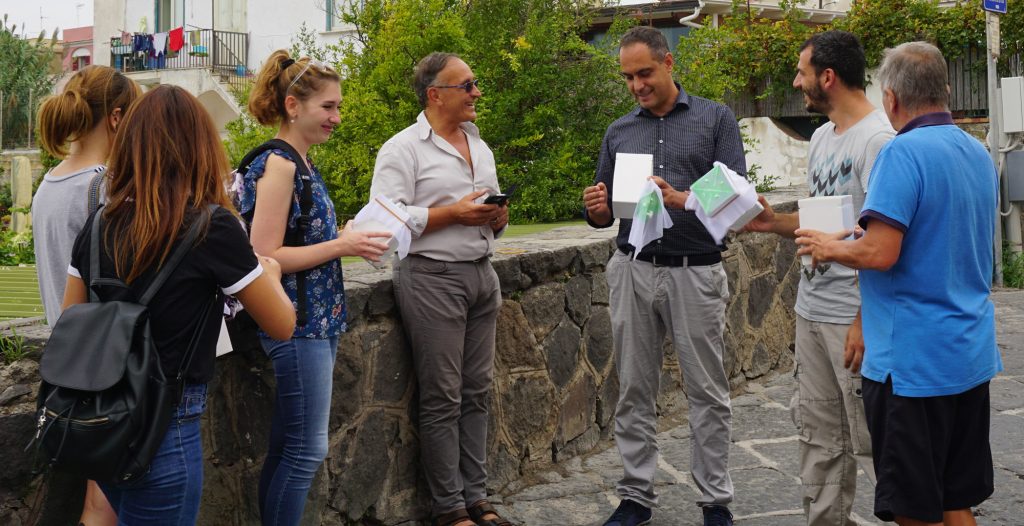
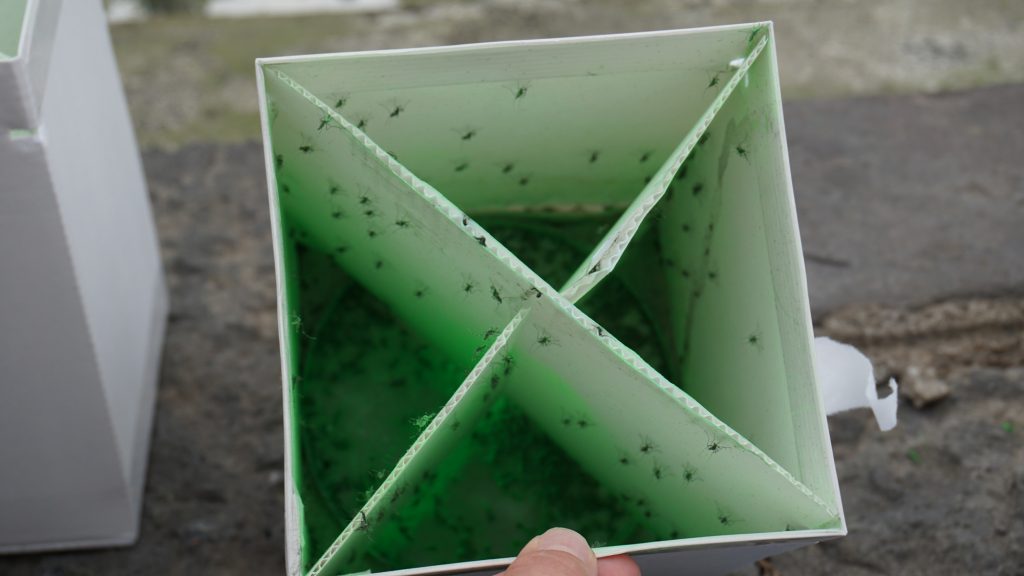
ACTIONS 2016-2017 [PHASE2]
In the second phase of the project, an action was carried out to study the temporal and spatial dynamics of the tiger mosquito population on the island and on the islet of Vivara. The action, designed as a Citizen-science initiative, involved 13 volunteers (including the mayor of Procida Raimondo Ambrosino) who helped to manage, on a weekly basis from April to December 2016, 26 ovitrappole distributed throughout the island. Subsequently, 79 families gave access to their gardens for the placement of about one hundred ovitraps for the analysis of spatial distribution of the tiger mosquito population. The analysis of the collected data has made it possible to highlight a temporal trend influenced by the ambient temperature, with two density peaks in the months of July and September, and a substantial uniformity of distribution of mosquitoes on the island.


ACTIONS 2015 [PHASE1]
The project began in September 2015 with a sociological analysis, carried out in collaboration with the municipality of Procida through the administration of KAP (Knowledge, Attitude and Practice) questionnaires and interviews, for the preliminary assessment of the knowledge of the health problem constituted by the tiger mosquito by the citizens of the island and their ability to participate in monitoring programs and fight this vector insect.
The survey revealed that, according to 70% of respondents, the abundance and problem of mosquitoes in Procida had increased in the last 10 years. Most residents said they spend on average more than an hour a day in green areas or outdoors on the island, and about 50% of respondents said they were forced to limit time spent outdoors due to mosquitoes. 77% of respondents were aware of the nature of mosquitoes as vectors of human diseases, and about a quarter of respondents knew at least one person who needed medical attention due to a mosquito bite. In contrast, very few respondents said they took action to reduce the proliferation of these insects by eliminating larval breeding sites (only 3% of respondents used larvicide products to dissolve in water and only 11% removed water containers from their homes or gardens). Finally, 88% of respondents were in favor of a mosquito control program in Procida, although only 44% of respondents would have consented to the installation of monitoring traps on their private properties. A third of the respondents said they were willing to contribute financially to the project and 25% of the respondents said they were willing to volunteer in the implementation of a control project.
